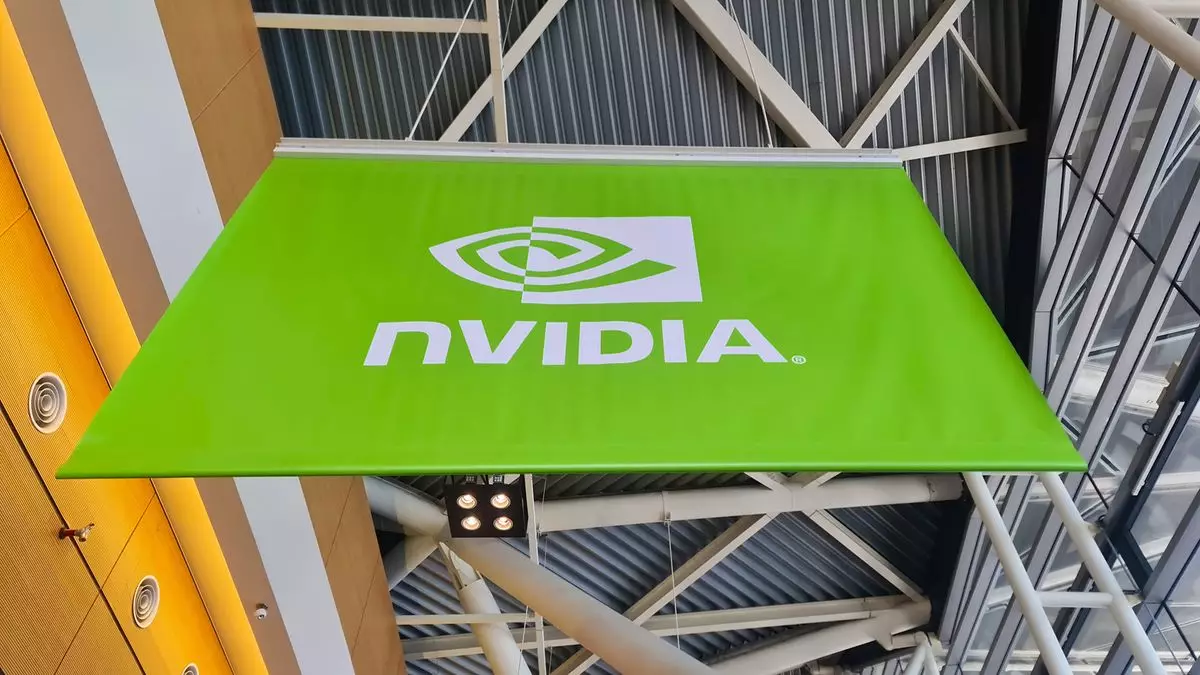Nvidia Corporation, a titan in the semiconductor industry, has recently found itself embroiled in a legal conflict that dates back to 2018. This situation has arisen as the company appeals against a lower court’s decision, permitting a class action lawsuit alleging that it misled investors regarding its reliance on the cryptocurrency market. As the Supreme Court considers Nvidia’s arguments, it is essential to unpack the implications of this case, not only for the company but also for the broader landscape of securities litigation.
Investors have grown increasingly cautious of companies that rely heavily on volatile sectors, such as cryptocurrency. The lawsuit claims that Nvidia inadequately disclosed how integral crypto sales were to its revenue streams, thereby violating the Securities Exchange Act of 1934. This allegation gains weight considering Nvidia’s prior $5.5 million settlement with the Securities and Exchange Commission (SEC) for not fully disclosing its dependency on crypto mining for GPU sales. The stakes are high, not just for Nvidia but also for investors who feel wronged by insufficient transparency.
The lawsuit in question is not new; it carries a history of ups and downs that complicate its current standing. Initially dismissed in 2021, the case was revived by the 9th Circuit Court of Appeals. Now, Nvidia is once again attempting to squash it, arguing that the claims lack sufficient merit to move forward. The current discussion in the Supreme Court zeroes in on the strength of the lawsuit in light of the Private Securities Litigation Reform Act of 1995. This act sought to curb frivolous lawsuits, which adds nuance to the ongoing legal debate.
Nvidia’s defense hinges on claiming that the plaintiffs must present concrete evidence before a case can even be considered. Liberal Justice Ketanji Brown Jackson raised a pertinent concern, questioning whether requiring evidence at this stage fails to acknowledge that proof often comes later in the litigation process. This exchange illuminates a significant legal dilemma: should investors be obligated to present extensive evidence upfront, or is it sufficient for them to articulate the essence of their claims initially?
As the court deliberates, it is critical to recognize the broader implications of their ruling. This case, alongside another involving Meta, could reshape the legal framework around private securities litigation. Should Nvidia succeed in its appeal, it could establish a precedent that complicates future cases against large corporations, potentially allowing them to evade accountability under more restrictive evidence requirements.
The outcome has ramifications not only for Nvidia but also for public trust in financial disclosures from all corporations. A ruling in favor of Nvidia could discourage investors from pursuing claims, undermining investor protections embedded within securities law. Conversely, a decision supporting the plaintiffs could empower shareholders, reinforcing the expectation for transparency and integrity from public firms.
Investor Sentiments and Market Reactions
However, one question looms large: who are the individuals driving this lawsuit forward? Given Nvidia’s soaring success since 2018, it seems puzzling that disenchanted investors from that timeframe would still stake their hopes on a class-action suit. Many investors who have held onto their shares during this tumultuous period have likely benefited from appreciation in stock value, laughing all the way to the bank, as it were. This casts doubt on whether the anger driving the lawsuit originates from those who acted based on 2018 information or from investors who exited their positions at an inopportune time and now regret their decisions.
As the Supreme Court weighs these arguments, the prevailing thought remains: the outcome will resonate far beyond Nvidia, representing a crucial inflection point for securities litigation in the tech industry. Investors, stakeholders, and legal scholars alike are left on the edge of their seats, eager to see how this pivotal moment will unfold. In a world where transparency is paramount, the final verdict could well redefine how companies communicate with their shareholders—and how those shareholders seek to hold them accountable.

